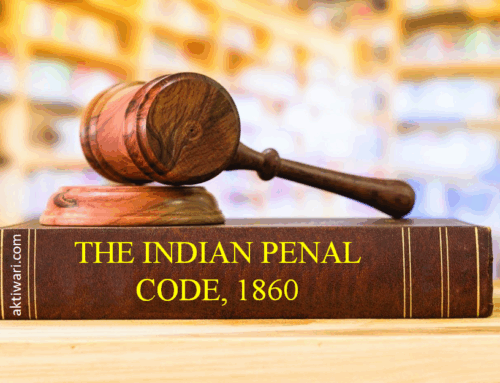– Abul Kalam Azad Sulthan, Advocate, High Court of Judicature at Madras and Madurai Bench of Madras High Court & Partner, Spicy Law Firm.
Introduction
Brief overview of the importance of mines and minerals in Tamil Nadu -Purpose of the blog post: to provide an overview of the rules and regulations governing mines and minerals in Tamil Nadu
Nestled in the heart of South India, Tamil Nadu stands as a vibrant testament to the intricate dance between nature’s bounty and human ingenuity. While its lush landscapes and rich cultural heritage often steal the spotlight, an equally significant narrative lies beneath the surface—one that revolves around the invaluable resources hidden in the state’s geological layers. Mines and minerals in Tamil Nadu are not just commodities; they are the backbone of the state’s economy, fueling industries, generating employment, and driving technological advancements. As we peel back the layers of this intriguing realm, a deeper understanding emerges, revealing the essential role that these natural treasures play in our everyday lives.
However, the immense potential of Tamil Nadu’s mineral wealth comes with a set of challenges and responsibilities. The extraction and utilization of these resources are governed by a complex web of regulations designed to ensure sustainability and environmental stewardship. This blog post aims to shed light on the regulatory framework that underpins mining activities in the state, highlighting the pivotal role these rules play in balancing economic growth with ecological preservation. As the world grapples with climate change and sustainable development, understanding these regulations becomes not just an academic endeavor but a societal necessity.
For individuals, policy-makers, and prospective investors alike, delving into this topic opens a pathway to informed decision-making and responsible stewardship of natural resources. How do these regulations affect the local communities that rely on mining for their livelihoods? What measures are in place to safeguard the environment while eliminating exploitation? These pressing questions beckon exploration, as they underline the direct impact of mining practices on the fabric of society and the environment in Tamil Nadu.
As we embark on this journey through the critical landscape of mines and minerals in Tamil Nadu, we invite you to consider the tremendous potential and serious implications of this sector. Together, we will unravel the intricate balance of laws, practices, and community dynamics that shape the industry’s future. Read on, not only to equip yourself with knowledge that could inform your understanding of this vital sector, but to engage in the larger conversation about responsible resource management in Tamil Nadu and beyond.
Legislative Framework – Overview of the key laws and regulations governing mines and minerals in Tamil Nadu
The mining and mineral sector in Tamil Nadu is primarily governed by a comprehensive legislative framework that encompasses both central and state-level laws and regulations. At the national level, the Mines and Minerals (Development and Regulation) Act, 1957 (MMDR Act) serves as the cornerstone, providing a robust foundation for regulating the exploration, mining, and management of minerals across the country.
Within the state of Tamil Nadu, the Tamil Nadu Minor Mineral Concession Rules, 1959, and the Tamil Nadu Minerals (Vesting of Rights) Act, 1959, play pivotal roles in governing the exploration, exploitation, and regulation of minor minerals. These state-specific laws complement the overarching MMDR Act, ensuring a tailored approach to address the unique geological and environmental considerations of the region. Additionally, the Tamil Nadu Minerals Policy, 1994, outlines the state’s strategic vision and objectives for the sustainable development and utilization of its mineral resources, fostering a balanced approach between economic growth and environmental conservation.
+ Mines and Minerals (Development and Regulation) Act, 1957
The Mines and Minerals (Development and Regulation) Act, 1957, is a comprehensive legislation that governs the exploration and exploitation of minerals in India, including the state of Tamil Nadu. This Act aims to ensure the scientific and sustainable development of mineral resources while promoting the interests of both the nation and the stakeholders involved in mining activities.
Under this Act, the Central Government has the power to classify minerals as ‘major’ or ‘minor’ based on their economic importance and availability. The Act outlines specific provisions for the granting of reconnaissance permits, prospecting licenses, and mining leases for both major and minor minerals. It also establishes guidelines for the conservation and systematic development of mineral resources, ensuring their optimal utilization while minimizing environmental impact. The Act empowers the State Governments to frame rules and regulations for regulating the grant of mining leases, ensuring the safety of mining operations, and protecting the rights of the local communities affected by mining activities.
+ Tamil Nadu Minor Mineral Concession Rules, 1959
The Tamil Nadu Minor Mineral Concession Rules, 1959, is a comprehensive set of regulations governing the exploration, mining, and utilization of minor minerals within the state of Tamil Nadu. These rules were formulated under the provisions of the Mines and Minerals (Development and Regulation) Act, 1957, and are aimed at ensuring the systematic and sustainable exploitation of minor mineral resources.
Under these rules, minor minerals are classified into two categories: quarry minerals and ordinary earth. Quarry minerals include building stones, gravel, ordinary sand, and certain types of clay, while ordinary earth encompasses ordinary soil, ordinary clay, and ordinary sand. The rules outline the procedures for obtaining various types of concessions, such as quarrying leases, quarry permits, and prospecting licenses, depending on the nature and scale of the mining operation. Additionally, they specify the terms and conditions for the renewal, transfer, and termination of these concessions, as well as the responsibilities and obligations of the concession holders regarding environmental protection, safety measures, and payment of royalties and fees.
+ Tamil Nadu Granite Conservation Rules, 1998
The Tamil Nadu Granite Conservation Rules, 1998, were enacted to regulate and control the extraction and transportation of granite within the state. These rules are crucial in ensuring the sustainable utilization of this valuable natural resource and safeguarding the environment from the adverse effects of unregulated mining activities.
Under these rules, strict guidelines are in place for the granting of quarry leases and permits. Prospective quarry operators must comply with comprehensive environmental impact assessments and obtain clearances from various regulatory authorities. Additionally, the rules mandate the implementation of effective environmental management plans, including measures for the prevention of air and water pollution, noise control, and site restoration after mining operations cease. Stringent penalties are imposed for non-compliance, underscoring the state’s commitment to responsible granite mining practices.
+ Other relevant state and central government regulations
In addition to the Mines and Minerals (Development and Regulation) Act, 1957, and the respective rules framed by the Central Government, there are several other relevant state and central government regulations that govern the mining and mineral industry in Tamil Nadu. These regulations are aimed at ensuring sustainable mining practices, environmental protection, and the welfare of workers employed in the sector.
One of the key state-level regulations is the Tamil Nadu Minor Mineral Concession Rules, 1959, which governs the grant of quarry leases and permits for minor minerals such as building stones, gravel, and earth. The rules outline the procedures for obtaining licenses, the terms and conditions of leases, and the royalties payable to the state government. Furthermore, the Tamil Nadu Pollution Control Board enforces various environmental laws and regulations, including the Water (Prevention and Control of Pollution) Act, 1974, and the Air (Prevention and Control of Pollution) Act, 1981, to ensure that mining activities do not cause undue harm to the environment. Compliance with these regulations is mandatory for all mining operations in the state.
Overview of the different types of minerals found in Tamil Nadu, including:
+ Major minerals (e.g. granite, limestone, quartz)
Tamil Nadu is a mineral-rich state, endowed with a diverse range of mineral resources. The state is blessed with an abundance of both major and minor minerals, playing a crucial role in the economic development and industrial growth of the region.
Major minerals found in Tamil Nadu include granite, limestone, and quartz, among others. Granite, a highly sought-after building material, is found in abundance in districts like Madurai, Theni, and Virudhunagar. Limestone, a key ingredient in cement production, is widely available in regions such as Ariyalur, Perambalur, and Coimbatore. Quartz, a versatile mineral with numerous applications in electronics, optics, and glassmaking, is found in substantial quantities in districts like Dharmapuri and Salem. The state’s rich reserves of these major minerals have fueled the growth of industries like construction, cement, and glass manufacturing.
Minor minerals (e.g. sand, gravel, clay)
Here are two informative paragraphs about minor minerals like sand, gravel, and clay in the context of rules and regulations regarding mines and minerals in Tamil Nadu:
The extraction and mining of minor minerals such as sand, gravel, and clay in Tamil Nadu is regulated under the Tamil Nadu Minor Mineral Concession Rules, 1959. These rules outline the procedures for obtaining permits or leases for quarrying operations of minor minerals. The state government exercises control over the quarrying of these minerals from both government-owned and private lands. Strict guidelines are in place to prevent illegal mining and environmental degradation. Mining leases for minor minerals are granted for specific time periods, subject to periodic renewals based on adherence to regulations.
All quarrying activities involving minor minerals require prior environmental clearance from the concerned authorities. The regulations emphasize sustainable mining practices, restoration of mined areas, and minimizing adverse impacts on the local ecosystem and communities. Measures such as restricting mining in ecologically sensitive zones, maintaining buffer zones near water bodies, and implementing effective pollution control mechanisms are mandated. The state government periodically revises the policies and rules to ensure responsible extraction of minor minerals while balancing economic needs with environmental conservation.
Environmental Impact Assessment (EIA) requirements
Environmental Impact Assessment (EIA) is a crucial requirement for mining and mineral exploration activities in Tamil Nadu. The state government has implemented stringent regulations to ensure that the environmental consequences of these activities are thoroughly evaluated and mitigated before any project is approved.
The EIA process involves a comprehensive study of the potential impacts of the proposed mining or mineral exploration project on various environmental components, including air quality, water resources, soil, flora, fauna, and the surrounding ecosystems. It also takes into account the socio-economic implications for the local communities. The EIA report must be prepared by accredited consultants and submitted to the respective regulatory authorities for review and approval. Only after a thorough evaluation and public consultation process can the project be granted clearance, subject to the implementation of appropriate environmental management plans and monitoring measures.
Water pollution prevention and control measures
Water pollution prevention and control measures are crucial aspects of mining operations in Tamil Nadu. The state government has implemented stringent regulations to mitigate the adverse environmental impacts of mining activities on water resources. These measures aim to safeguard the quality of surface and groundwater, ensuring the sustainability of water sources and protecting the health of local communities.
Mining companies operating in Tamil Nadu are required to develop and implement comprehensive water management plans. These plans must outline strategies for minimizing water consumption, treating and recycling wastewater, and preventing the discharge of pollutants into water bodies. Measures such as constructing settling ponds, installing advanced wastewater treatment facilities, and implementing regular monitoring programs are mandated to ensure compliance with water quality standards. Additionally, mining operations are required to conduct environmental impact assessments and obtain necessary clearances from relevant authorities before commencing any activities that may potentially affect water resources.
Air pollution prevention and control measures
Air pollution prevention and control measures are crucial aspects of the rules and regulations governing mines and minerals in Tamil Nadu. The state recognizes the potential environmental impact of mining activities and has implemented stringent guidelines to mitigate air pollution.
Mining operations often generate significant amounts of particulate matter, including dust and other airborne pollutants, which can have detrimental effects on the surrounding environment and human health. To address this concern, Tamil Nadu has mandated the implementation of various air pollution control measures. These include the installation of effective dust suppression systems, such as water sprinklers and fog cannons, to minimize the dispersion of particulate matter. Additionally, mining companies are required to conduct regular air quality monitoring and implement measures to control emissions from machinery and equipment used in the mining process. Strict adherence to these regulations is essential to ensure the preservation of air quality and the well-being of local communities.
Rehabilitation and reclamation requirements
Rehabilitation and reclamation requirements are crucial aspects of the mining industry in Tamil Nadu, aimed at minimizing the environmental impact and ensuring sustainable practices. The state’s regulations mandate comprehensive plans for restoring the mined areas to their original or an environmentally stable condition. Here’s an overview of these requirements:
Mining operations in Tamil Nadu are required to develop and implement detailed rehabilitation and reclamation plans, which must be approved by the relevant authorities before commencing any mining activities. These plans should outline the specific measures to be taken for land reclamation, including backfilling of excavated areas, slope stabilization, topsoil management, revegetation, and post-mining land use. The plans must also include provisions for monitoring and maintenance of the reclaimed areas to ensure successful rehabilitation. Failure to comply with these requirements can result in penalties, suspension, or revocation of mining licenses.
Overview of the compliance and enforcement mechanisms in place to ensure adherence to rules and regulations
In Tamil Nadu, the Department of Geology and Mining plays a pivotal role in ensuring compliance with the rules and regulations governing the mining sector. The department employs a comprehensive enforcement mechanism that encompasses regular inspections, audits, and strict monitoring of mining operations. Dedicated teams of mining inspectors and officers are deployed to conduct on-site visits, scrutinize mining plans, and verify adherence to prescribed safety standards, environmental norms, and sustainable mining practices.
The enforcement mechanisms also involve stringent penalties and legal actions for non-compliance. Mining operators found violating the rules and regulations face severe consequences, including the imposition of fines, suspension of mining leases, and even criminal prosecution in cases of grave violations. Additionally, the department collaborates closely with other government agencies, such as the Pollution Control Board and the Forest Department, to ensure a coordinated approach in addressing environmental concerns and safeguarding ecologically sensitive areas from unauthorized mining activities.
Inspections and monitoring
Inspections and monitoring are crucial aspects of ensuring compliance with the rules and regulations governing mines and minerals in Tamil Nadu. The state government, through its designated authorities, conducts regular inspections to assess the adherence of mining operations to the prescribed norms and guidelines.
These inspections cover various aspects, including environmental safeguards, safety measures, resource utilization, and adherence to approved mining plans. Qualified inspectors meticulously examine the mining sites, scrutinize records, and engage with operators to identify any potential violations or areas of concern. Stringent monitoring mechanisms are in place to track the extraction and transportation of minerals, ensuring transparency and accountability throughout the supply chain. Violations are dealt with firmly, and appropriate penalties or corrective actions are imposed to uphold the integrity of the mining industry and protect the interests of all stakeholders.
Penalties for non-compliance
Penalties for non-compliance with the rules and regulations governing mines and minerals in Tamil Nadu are strictly enforced. The state government takes a firm stance against any violations to ensure the sustainable and responsible management of its natural resources.
Failure to comply with the prescribed norms can result in severe penalties, including hefty fines, suspension or cancellation of mining leases, and even imprisonment in cases of grave offenses. The authorities conduct regular inspections and audits to monitor adherence to safety standards, environmental regulations, and fair labor practices. Any irregularities or breaches are dealt with swiftly and without compromise, as the state prioritizes the well-being of its citizens, the protection of the environment, and the long-term viability of the mining industry.
Appeal mechanisms
In the realm of mines and minerals in Tamil Nadu, the appeal mechanisms serve as a crucial safeguard for stakeholders, ensuring transparency and fairness in the decision-making process. These mechanisms provide an avenue for aggrieved parties to seek redressal against any perceived injustice or violation of their rights.
The appeal process typically involves multiple tiers, allowing for a comprehensive review of the contested decision. At the initial stage, appeals may be filed before the designated authority within the state’s mining department, such as the Director of Mines or the Commissioner of Geology and Mining. If the appellant remains dissatisfied with the outcome, they can escalate the matter to higher appellate bodies, which may include tribunals or courts established specifically for mining-related disputes. These higher authorities possess the jurisdiction to scrutinize the case meticulously, weighing the evidence and legal arguments presented by both parties, before rendering a binding decision. The appeal mechanisms not only uphold the principles of natural justice but also contribute to the consistent interpretation and application of mining laws and regulations across the state.
Discussion of recent developments or amendments to the rules and regulations governing mines and minerals in Tamil Nadu
Recent developments and amendments to the rules and regulations governing mines and minerals in Tamil Nadu have been driven by the state government’s efforts to strike a balance between promoting sustainable mining practices and safeguarding the environment. In 2021, the Tamil Nadu government introduced amendments to the Tamil Nadu Minor Mineral Concession Rules, 1959, aimed at streamlining the process of obtaining quarrying leases and ensuring better compliance with environmental norms. These amendments included provisions for mandatory environmental clearances, periodic environmental audits, and stricter penalties for violations.
Furthermore, the state has taken proactive measures to address the issue of illegal mining, which has been a longstanding concern. The Tamil Nadu Minerals Corporation Limited (TAMIN) was established in 2022 to oversee and regulate the mining activities in the state. TAMIN has been granted the authority to grant mining leases, monitor mining operations, and ensure adherence to environmental regulations. Additionally, the state has implemented advanced technology, such as drone surveillance and remote sensing, to detect and prevent illegal mining activities, demonstrating its commitment to sustainable and responsible mining practices.
Conclusion
In conclusion, understanding the rules and regulations governing mines and minerals in Tamil Nadu is essential for sustainable development and responsible resource management. The state’s regulatory framework emphasizes the importance of environmental protection, community welfare, and adherence to legal protocols in mining activities. By fostering compliance with these regulations, stakeholders can ensure that mineral extraction contributes positively to the economy while minimizing its detrimental impacts on ecosystems and local communities. As the demand for minerals continues to grow, it is crucial for all involved—governments, corporations, and citizens—to work collaboratively to uphold these standards, promoting a balanced approach to industrial growth and environmental stewardship. Ultimately, embracing these rules not only facilitates the rational use of natural resources but also paves the way for a more sustainable and equitable future for all in Tamil Nadu.







Leave A Comment